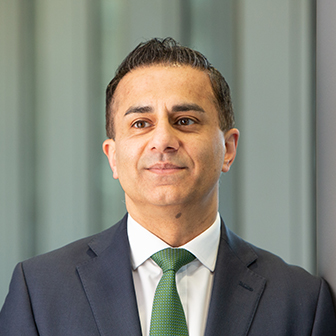Chaired by Bruce Macmillan, a well qualified panel comprising of Philip Wood, Ciarán Fenton, Anthony Kenny and Neil Hewlett chewed over this challenging area with a knowledgeable and engaged audience.
This article represents some personal reflections on the issues at play. Much has been written about this topic and I have listed at the foot of the article some of those of who have written more extensively and incisively about it than me and whose views I have been influenced by in writing this, and generally.
What are ethics?
Ethics is a branch of philosophy that is concerned with how people make good decisions on moral problems, or those with a moral dimension.
For those, like lawyers, who are required to observe a code of professional conduct and ethics, these moral problems arise in the day to day aspects of their work, which isn’t to say that they arise regularly.
What is clear to in-house lawyers generally, and particularly those in leadership positions, is that determining where ethics start and end is not always straightforward. So how can lawyers navigate this tricky subject?
I have considered this question in three areas:-
- The Role of the General Counsel.
- Their relationship with their CEO and organisation.
- Ethical leadership and management.
The Role of the General Counsel
There is no standard qualification or job description for an organisation’s chief lawyer. Even job titles differ.
In the UK, most, and perhaps all, GCs are qualified lawyers. This brings a requirement to adhere to the standards of professional conduct and ethics of their professional body.
In relation to solicitors, the SRA has an outcomes-focused approach, with greater emphasis on the observation of fundamental principles and a code of conduct. The mandatory principles set out the ethical and professional standards to be adhered to and are therefore worth repeating here:-
- Uphold the rule of law and the proper administration of justice.
- Act with integrity.
- Not allow your independence to be compromised.
- Act in the best interests of the client.
- Provide a proper standard of service to your client.
- Behave in a way that maintains the trust the public places in you and in the provision of legal services.
- Comply with your legal obligations to deal with your regulators and ombudsmen in a timely and cooperative manner.
- Run your business or carry out your role in the business effectively and in accordance with proper governance and sound financial and risk management principles.
- Run your business or carry out your role in the business in a way that encourages equality of opportunity and respect for diversity.
- Protect client money and assets.
The code of conduct sets out more detailed requirements in areas relating to such as relationships with the client, regulator and third parties.
In-house lawyers are subject to the principles and code and they will apply to differing degrees, depending on circumstances. But there are important requirements here, including such issues as restrictions on who you can act for; conflicts of interest; confidentiality; duties to the client and when they may be overridden; the rule of law and duties to the court; standards of service; supervision and competence; systems and controls; reporting obligations and complaints.
The general point here is that solicitors (and other qualified lawyers under their own codes) are required to meet principles and obligations in carrying out their professional roles (and sometimes beyond) that provide a comprehensive framework for how they should act and behave.
So what does this mean for the in-house lawyer’s relationship with their employer?
The relationship with the organisation
It’s stating the obvious to observe that, when hiring a professional lawyer, the organisation is bringing on board someone subject to a very particular code of professional conduct and ethical responsibilities.How these play out in the day to day work of the lawyer depends to some degree on the circumstances of the role. It may be that issues relating to conflicts of interest and confidentiality, for example, rarely give rise to difficulty.
Nevertheless, what is clear from the SRA requirements, for example, is that in-house lawyers need to be fully aware of what their responsibilities are. Consequently, these will need to be mapped against the business of the organisation and the different roles that the in-house lawyers carry out in it. This places a particular responsibility on the GC and other senior in-house lawyers to ensure that areas of actual or potential ethical conflict are identified, managed and reviewed. They also need to ensure that there are proper systems and controls in place so that the high standards of practice and conduct required are supported and encouraged.
Given that the in-house lawyer comes with a particular set of professional responsibilities, it is clearly important that this is understood by the organisation and reflected in the terms and conditions of engagement. This is where the GC can be particularly influential.
Of course, lawyers are not the only employees to have professional or regulatory responsibilities, but some of theirs are necessarily unique. I agree with those who have said that the pact between the organisation and the GC (and consequently the other lawyers also) needs to recognise and support their professional responsibilities.
This is particularly so in those areas their professional responsibilities may conflict with the business imperatives of the organisation – and those of particular managers or executives.
For example, by making clear that the client is the organisation and that the lawyers may not act for a subsidiary or an individual executive in certain circumstances; or that the duty to act in the organisation’s best interests is not without limit in, for example, circumstances where a conflict or matter of professional integrity arises.
The bargain, on the organisation’s side, includes recognition of the role and responsibilities of the lawyer, particularly in advising on matters that are not ‘black or white’ but which sit in the grey zone.
To protect the role of the lawyer, it will also usually be sensible to ensure that there is a reporting or governance framework that supports this. For example, by making sure that the GC either sits on the board or reports into it via the CEO. So if, for example, the GC reports to the Finance Director, there is a dotted line into the CEO and, in any event, a dotted line to a board non-executive.
For most CEOs and boards, the fact that their GC and lawyers have ethical responsibilities will come as no surprise. Indeed, they may view the lawyers’ high standards of conduct and behaviour to be key reasons for employing them and having them in positions of influence beyond the doors of the legal department. And, of course, CEOs and boards will often be acutely aware of the legal and regulatory obligations to which the organisation is subject and of the reputational damage that could flow from non-compliance. Additionally, many organisations will have their own rules, standards of conduct and values that, in many instances, will echo the professional obligations of their lawyers.
But these are not always in evidence and it is therefore important that the bargain between the GC and the CEO and board is clear and workable.
Ethical Leadership
The growth in the number of lawyers employed in-house has been accompanied by a drive on their part to play a greater and more influential role in their organisations. This has seen the role of the GC gain increasing importance and has seen legal teams adopting mainstream business processes and terminology in their effort to provide a higher quality service and better value to the organisation. No longer just a lawyer, many GCs and their lawyers will see themselves as business partners of the board, CEO, executive and management of the organisation.There is nothing wrong with this, of course. Lawyers now have the opportunity to employ their legal skills in supporting key business projects and initiatives and have developed new skills – business and interpersonal – that help them play this more pivotal role.
Yet the move to a more ‘commercial’ role and mindset is not without its tensions (something which Ben Heineman Jr and others have written about at some length). These tensions can arise in a number of ways:-
- Not all business leaders have a positive attitude about what benefits lawyers can bring and they may have little understanding of the law or the role of the lawyer.
- Once the GC and other senior lawyers become part of the senior team they’re subject to the normal group pressures to conform and focus on the business imperatives.
- CEOs and business executives are often strong personalities who are used to making persuasive arguments in support of a particular course of action.
- Wearing their business partner hat, the GC will want to be collaborative and supportive. Yet, as the chief lawyer, they need to be questioning, forensic, and independent and consider the interests of the organisation. And that may not always make them popular.
- It may be one thing for the GC to have agreed ‘safety valve’ arrangements such as a dotted line to a NED or a regular meeting with the board, but these necessarily define the GC as apart.
- Ultimately, the GC owes their position and success to how well they interact with the CEO (particularly) and other executive leaders. No GC wants to jeopardise their career prospects.
These tensions do not mean that the GC should not act as a business partner but only focus on being a lawyer and guardian of the organisation. But it does require that the modern GC has a particularly well developed set of legal, business and personal skills to navigate these tensions. I suggest this has four requirements:-
- For all the benefits that being more commercially savvy will bring, the GC is a lawyer first and business partner second. In many instances there may be little or no material tension between them, but the lawyer has no choice when it comes to their professional duties, ethics and values and they are not for trade.
- The GC must ensure that the legal team is clear about its professional and ethical responsibilities and that these are discussed, reviewed and rehearsed in the context of the team’s day to day work for the organisation. Also, that the team’s lawyers are encouraged and supported (including via learning and development) in demonstrating and upholding the high ethical and professional standards required.
- That the bargain between the GC, the lawyers and the organisation is clear. For the organisation, it understands the framework in which its lawyers must operate; how this may play out in certain circumstances; and that it values and supports the independent mind and high ethical standards that accompany hiring in-house lawyers – and has systems in place that protect these benefits. For the GC this bargain is about bringing real value to the organisation not just through the delivery of high quality, ‘commercial’ legal services but also through their role in holding an ethical line and calling out actions that undermine it.
- More than ever, the GC needs good antennae, excellent judgement, a strong and supportive team and network and not a little courage.
• Ethical Leadership For In-House Lawyers – Mapping the Moral Compass 2016 Richard Moorhead, UCL Centre For Ethics and Law
• Lawyers Ethics and Professional Responsibilities – Andrew Boon
• Ben Heineman Jr – the Inside Counsel Revolution
• Cheryl Foy – Defining the boundaries of the in-house counsel, Canadian Lawyer January 2012
• Paul Gilbert – LBC Wise Counsel What do we expect from General Counsel, In-House Lawyer Feb 2017
• Eric Sigurdson, The Sigurdson Post – General Counsel and In-House Counsel as Corporate Conscience
• SRA Handbook 2011 In-House Lawyer’s Guide – Slaughter and May January 2015




